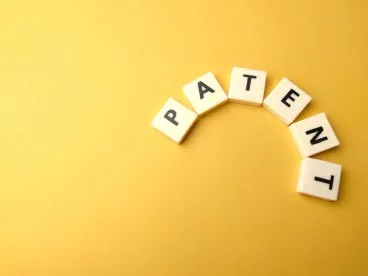The US Court of Appeals for the Federal Circuit rejected a bright-line rule that patent infringement notice letters and related communications can never form the basis for specific personal jurisdiction. Apple Inc. v. Zipit Wireless, Inc., Case No. 21-1760 (Fed. Cir. Apr. 18, 2022) (Hughes, Mayer, Stoll, JJ.)
Zipit owns two patents directed to wireless instant messaging devices that send and receive instant messages via Wi-Fi. Since 2013, Zipit and Apple have communicated and met at Apple’s offices in Cupertino, California, to discuss the possible purchase or license of Zipit’s patents. Zipit also sent Apple an e-mail in 2015 about “Apple’s Ongoing Infringement” and another e-mail later that year about “Apple’s Ongoing Willful Infringement,” addressed to Apple’s Cupertino office. In 2020, Zipit sued Apple in Georgia for patent infringement, but ultimately moved to dismiss the case without prejudice. Apple subsequently filed a complaint in Northern District of California seeking a declaratory judgment of noninfringement. Zipit moved to dismiss for lack of personal jurisdiction. Although the district court found that Apple had established requisite minimum contacts and Zipit had not established a compelling case that the exercise of jurisdiction would be unreasonable, the court ultimately dismissed Apple’s action for lack of personal jurisdiction. Apple appealed.
The Federal Circuit began its analysis by considering Zipit’s contacts with California, finding that that this case was not “one of the ‘rare’ situations in which sufficient minimum contacts exists but where the exercise of jurisdiction would be unreasonable.” The Court explained that that foreseeability (whether a defendant should reasonably anticipate being hauled into court) is a critical component is assessing specific personal jurisdiction. Citing the Supreme Court of the United States’ 1985 decision in Burger King v. Rudzewicz, the Court considered three factors relevant to assessing specific jurisdiction:
-
Whether a defendant purposefully directed its activities at residents of the forum
-
Whether the claim arose out of or related to the defendant’s activities within the forum
-
Whether asserting personal jurisdiction was reasonable and fair.
The Federal Circuit found that Apple had established that Zipit had minimum contacts with California by directing its activities to California by letters and claim charts, and traveling to Apple’s California offices for related discussions. The Court further noted Zipit’s escalation of its infringement allegations, going “so far as twice describing Apple’s infringement as willful” and keeping Apple apprised of the patents’ ongoing inter partes review status.
The Federal Circuit next found that the district court erred in finding that the exercise of jurisdiction would be unreasonable because Zipit’s contacts with California all related to the “attempted resolution of the status of the patents-in-suit, i.e., for the purpose of warning against infringement.” The Court explained that the “settlement-promoting policy” that a right holder trying settle disputes should be permitted to send a notice letter to a party in a particular forum without being hauled into court in that forum was relevant, but noted that this policy cannot “control the inquiry” and must be considered together with other Burger King factors relating to a variety of interests. The Court explained that it and other circuits have “repeatedly rejected the notion that the sending of a notice letter ‘can never provide specific jurisdiction.’” The Court analyzed the settlement-promoting policy alongside each of the Burger King factors and determined that although the policy favored Zipit, Zipit went beyond the policy by amplifying its allegations and ultimately suing Apple for infringement.
Lastly, the Federal Circuit found Zipit’s argument that it could not have foreseen being hauled into court in California because of a four-year lapse between its last contact with Apple and Apple’s filing not credible. The Court explained that Zipit reignited the parties’ contacts by filing suit in Georgia, and after moving to dismiss that action without prejudice, could have reasonably foreseen that Apple would “respond in kind” by filing a declaratory judgement claim. The Court thus reversed the district court’s judgment and remanded for further proceedings.




 />i
/>i

